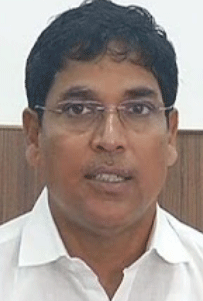Notwithstanding opposition from different quarters and opposition BJP and Congress, Odisha Government Tuesday ensured passage of the controversial Odisha University (Amendment) Bill, 2020 which made provision of abolishing senates in universities.While opposition parties claimed that the Odisha University (Amendment) Bill, 2020, will reduce the autonomy of the varsities, the State Government denied the accusation and said it will activate the functioning of these institutes that will now be governed under one law.
The Bill introduced by Higher Education Minister Arun Kumar Sahoo on 29 September in the Assembly, was passed by voice vote while members of the main opposition BJP boycotted the discussion.
The Bill replaced an ordinance promulgated last month.
Participating in the discussion, Congress Legislature Party leader Narasingha Mishra described the passage of the Bill as a “dark history” of the Odisha Assembly.
Mr.Mishra dubbed the Bill as unconstitutional and illegal as it will bring the functioning of universities under government control.
If a university has to seek the permission of the Government for purchasing stationary items and if the Government decides courses to be taught, how can one say that it has autonomy, he asked.
“The contentious Bill will be challenged in Court. As a lawyer, I am sure that some of the clauses of the Bill will be repealed,” Mr.Mishra said.
The Bill also seeks to reconstitute a Committee which selects the Vice-Chancellor of a university by including in it a nominee of the State Government, who will be an academician, in place of the member selected by the syndicate.
The Minister said Governments in several states directly interfere in the appointment of the Vice-Chancellors, but there is no such provision in the Bill in Odisha.
“The Governor is the Chancellor of universities in the state and he will select one among the three candidates recommended by the search committee. The autonomy of the universities in Odisha will remain unaffected,” Sahoo said.
On the Congress’ opposition to the provision on the appointment of university teachers by the Odisha Public Service Commission (OPSC), the Minister said the Government wants to fill up the vacant posts in different varsities.
“Appointments by the OPSC and Staff Selection Board will be transparent,” he said.
On the abolition of Senates, the Minister said it does not hold its meetings in different universities for years together.
“We have made attempts to strengthen the syndicate for proper management of the university,” he said.
After the abolition of Senates, Syndicates will function as the highest authority in universities. There will be adequate representation of the Chancellor as well as the State Government in Syndicates, Mr.Sahoo said.
He said the tenure of Vice-Chancellors will be four years instead of three years and the upper age limit for holding the post will be 67 in place of the current 65 years.
The Minister said there will be no re-appointment of a Vice-Chancellor in the same university for a second time.
BJP Lawmaker J N Mishra, outside the House said, that the provisions of the Bill will allow the Government to interfere in the activities of universities.
State BJP leader and Union Minister Dharmendra Pradhan had earlier written a letter to the Union Education Minister opposing the ordinance, which the bill replaced.
Various student organisations have also protested across the state against the government’s move and a group of former vice-chancellors had met the governor seeking certain changes in the Bill.


